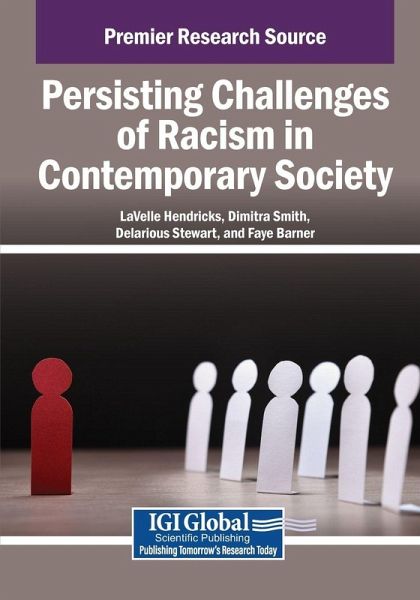
Persisting Challenges of Racism in Contemporary Society
Versandkostenfrei!
Versandfertig in über 4 Wochen
98,99 €
inkl. MwSt.

PAYBACK Punkte
49 °P sammeln!
In contemporary society, racism is not only an individual attitude but also embedded in systems such as education, healthcare, and criminal justice, leading to disparities in access and outcomes. The rise of social movements has highlighted these issues, advocating for equity and justice while challenging ingrained prejudices. Additionally, the intersectionality of racism with other forms of discrimination, such as sexism and classism, complicates the experiences of individuals, necessitating a nuanced understanding of identity and oppression. Addressing racism requires collective efforts that...
In contemporary society, racism is not only an individual attitude but also embedded in systems such as education, healthcare, and criminal justice, leading to disparities in access and outcomes. The rise of social movements has highlighted these issues, advocating for equity and justice while challenging ingrained prejudices. Additionally, the intersectionality of racism with other forms of discrimination, such as sexism and classism, complicates the experiences of individuals, necessitating a nuanced understanding of identity and oppression. Addressing racism requires collective efforts that include education, policy reform, and community engagement to dismantle oppressive structures and promote inclusivity. As society grapples with these challenges, ongoing dialogue and action are essential to foster a more equitable future. Persisting Challenges of Racism in Contemporary Society critically examines the nature of racism in contemporary society, despite advancements in social justice and equity. It illuminates the historical roots and systemic structures that sustain racial inequalities, while amplifying the voices of those directly impacted by racism. Covering topics such as economic inequality, intersectionality, and racial justice, this book is an excellent resource for college and university administrators, DEI officers, faculty members, graduate students, policymakers, researchers, academicians, and more.












